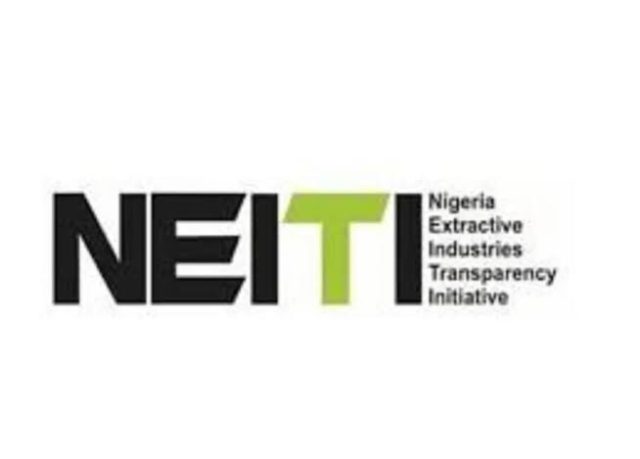For over five decades, Nigeria has relied on its oil and gas sector for its major foreign exchange and revenue earnings. Environmental degradation, loss of livelihoods, strange diseases, lack of portable water etc unfortunately instead became the lot of the citizens in the host communities who wondered what went wrong in the midst of so much prospects, hopes and now, dashed dreams.

Since the discovery of Oil in 1956, Nigeria has not transmuted to the El Dorado as wont other equally natural resources endowed countries such as Saudi Arabia, United Arab Emirates etc, It is an irony that the once mainstay of the nation’s economy has become its curse.
According to the Organisation of the Petroleum Exporting Countries (OPEC), “Nigeria currently has the world’s tenth largest crude oil reserves and is the world’s thirteenth-largest producer of crude oil”. Yet, it is the only oil producing nation that has no functional refinery, despite having four refineries under the watch of the country’s, Nigeria National Petroleum Company Ltd (NNPCL). The import of refined petroleum products (petrol, kerosine and diesel) highlights these shortcomings. Nigeria’s four refineries are moribund and have defied the law of Turnaround Maintenance (TAM) for over a quarter of a century. It is also on record that these refineries have gulped several billions of dollars.
Then, a Nigerian and the richest man in Africa, Aliko Dangote built the largest individually owned refinery in the world with the latest technological installations and manpower assemblage. However, news surrounding the principal actors in the Dangote Refinery has left citizens disappointed. Despite the federal Government’s intervention, including moving the sale of crude to the Dangote refinery from dollars, to our naira denominated currency, the controversies seem unending.
Very recently, the media was awash with stories of a non-governmental group under the Nigeria Coalition of Civil Society Organisations (NICOCSO) storming the National Assembly demanding for an end to the planned importation of 1.6billion litres of petrol (PMS) in to the country by the NNPCL (Though Thisday erroneously in the introduction reported a continuation of the imports, the body of the story clearly points to calls for discontinuation as reported by a host of other papers).
But this article is not about Dangote refinery. The reference is to show how helpless the citizens feel and are when they get entangled in the web of Nigeria’s oil, gas and solid minerals sector management, and the need for their robust participation in driving policy reforms in the sector.
NEITI’s Mandate

The Nigerian Extractive Industries Transparency Initiative (NEITI), a national chapter of the global Extractive Industries Transparency Initiative (EITI) and a coalition of civil society, government and industry operators was established in 2004, in the context of the comprehensive socio-economic reform programme embarked upon up by the Federal Government.
The reform programme was enshrined in the National Economic Empowerment Development Strategy (NEEDS) hinged on improving Nigeria’s macro-economic environment; pursuing structural reforms; strengthening public expenditure management; and implementing institutional and governance reforms.
NEITI’s mandate as set out in its establishment Act include to ensure due process, transparency, accountability and zero corruption in the determination, payments, and receipts of all government revenue accruing from the extractive sectors and in the application of the resources for national development. The major reasons for Nigeria’s joining the EITI were to promote prudent and accountable management of revenues from the country’s abundant natural resources, reduce poverty and ensure sustainable development.
NEITI carries out its mandate by conducting, publishing and disseminating annual independent reports of Nigeria’s oil, gas and mining industries with the ultimate goal of facilitating the good governance of Nigeria’s extractive sector and ensure that it is managed for the benefit of Nigerians. NEITI seeks to achieve its mandate via three work routes- Reporting, Dissemination, and Remediation. The NEITI industry reports usually make profound revelations by identifying several processes and governance lapses in the sector while offering appropriate recommendations on how to fix identified challenges.
For instance, figures from the latest NEITI industry reports of the oil and gas sector covering 2022-2023 revealed that Nigeria earned between 1999-2023 (25years), a total of $831 billion. The NEITI report also showed that there is still an outstanding collectible revenue of over $6 billion due to the Federal Government as of June 2024.
Meanwhile, just recently, the National Assembly approved the borrowing of $2.2 billion (N1.7 trillion to enable government fund its budget. These potential revenues come at a time when government is borrowing about a third of this figure to fund its infrastructure projects, secure lives and property of the citizens, but most importantly create opportunities for its 230 million people to feed.
Similarly, the NEITI reports over the years have revealed the volume of crude lost to theft, vandalism and other operational inefficiencies. The reports have gone ahead to also put value to these figures and what it could contribute towards improving the life of the average Nigerian. The story from the solid minerals sector is more saddening. In eighteen years, the sector just posted the trillion naira revenue contribution to the Nigerian economy with a GDP contribution of less than 1 percent despite the huge minerals deposit straddling every belt, region and state in the country. The sector is also known to be dominated by artisanal miners and is still exporting ores and other minerals in their raw forms (Free on Board), consequently exporting jobs meant for Nigerian youths to other climes.
By providing a seamless and efficient transparency and accountability corridor, NEITI promotes prudent management of the country’s revenue and supports government domestic revenue mobilisation. From inception, the EITI/NEITI process was conceived along the three constituent groups – government, companies and civil society. Of the three, only the civil society is not profit minded and directly represents the interest of the citizens. Built on this tripod, government is to receive rent from Nigeria’s resource endowments and manage same on behalf of the citizens. Companies on the other hand make investments that will yield returns. NEITI, thus is a vital vehicle for the purposes of empowering citizens and stakeholders with accurate and verifiable information about the country’s natural resources and management. To make the NEITI/EITI process more impactful, citizens are expected to use the NEITI reports to stimulate debates and engage the companies and government agencies involved in managing the country’s natural resources with the ultimate goal of holding them accountable. NEITI has deployed the use of traditional media (enwspapers, radio and television) to communicate and disseminate information contained in its reports. It has also broadened and expanded the reach of its dissemination efforts by using the social media and other digital platforms for communication. The EITI/NEITI process therefore expects that through the civil society, the citizens will get a seat at the table and participate in the decision-making processes and management of the country’s resource wealth. In the past two decades of the EITI in Nigeria, the civil society have played in this space, but not so effectively. The third sector has also sought ways to bridge the gap in the NEITI reports, by creating ingenious ways to track the implementation of the report recommendations. One of these innovations is the RemTrack app.
RemTrack: Information and power in the hands of the citizens
RemTrack is an online application designed to unpack the complex web of remedial issues highlighted in each NEITI industry reports into user-friendly on-the-go pieces of information and advocacy in furtherance of transparency and accountability in Nigeria’s extractive sector. RemTrack was thus created to fill the gap in tracking the implementation of extractive industries report findings and recommendations.
The app was developed by a Nigerian parliamentary monitoring non-governmental organisation – OrderPaper Advocacy Initiative. RemTrack was launched on the 4th December 2019 in collaboration with the Nigeria Extractive Industries Transparency Initiative -NEITI supported by then Facility for Oil Sector Transformation -FOSTER. The app was designed to facilitate transfer of knowledge and information, mobilise citizens for engagement and drive advocacy for extractive sector reforms in Nigeria, (orderpaper.ng).
According to OrderPaper, RemTrack is a global innovation being the first of its kind throughout the world conceived to foster the implementation of the Extractive Industries Transparency Initiative (EITI) process in Nigeria. The app clearly aligns with the drive of the global EITI to encourage the use of data and technology to promote the key objectives of transparency and accountability in the extractives sector of all implementing countries.
At inception, the sole source of information for RemTrack was the NEITI industry reports. Series of meetings were held at the NEITI Secretariat with representatives of OrderPaper, NEITI and some civil society actors. NEITI provided updates on the progress of implementation of the recommendations in its industry reports and considered the remedial issues as resolved, unresolved and pending or ongoing.
The content of the app has been expanded to include information and issues on extractive industries both locally, nationally and globally. A look at the platform of the app shows information culled from OPEC, NNPCL, International Atomic Energy Agency (IAEA), Worldbank, EITI, NEITI, etc. This promises to make the app a one-stop shop for information to the average Nigerian or interested persons on extractive industry issues benchmarked against international best practices. It is however, unfortunate that the hype and excitement that welcomed the launch of the app has waned.
With the enactment of the PIA and the need to effectively monitor the implementation of the various sections of the Act particularly dealing with host community issues, track social expenditure payments, community developments agreements in the mining sector, etc, as mandated by the EITI Standard, the need to revitalize and reactivate the app is now an urgency. With modern technology and the needed support, the RemTrack app can be upgraded to support in tracking issues like oil theft, pipeline vandalism, illegal mining, environmental degradation and other plethora of issues bedevilling Nigeria’s oil gas and mining sectors. Using the app, feedback can be given to government officials, policy makers, companies and other responsible bodies on the goings on in the host communities and the routes and corridors used to evacuate our mineral resources whether for export or local production and use.
In 2020, the world, Nigeria inclusive went through the pains of isolation and shut-down due to the Covid-19 pandemic. The use of technology for communication and other uses was unprecedented. Rising from that experience and with rising costs of face to face meeting logistics and security issues, the deployment of technology for citizens’ mobilisation and engagements makes the call for the reactivation of RemTrack more urgent. The app would facilitate and support evidence-based advocacy and subsequently drive reforms in Nigeria’s extractive sector
As a digital and technological application, RemTrack would create the platform for citizens engagement and participation in facilitating transparency in Nigeria’s extractive sector and at the same time the demand accountability from companies and government for their actions or inactions in providing policy direction for the country’s extractive industry. The role of digital governance at the moment is largely one of facilitation rather than regulation. For Marc and Kim, (2007): “Digital governance is comprised of both digital government (delivery and public services) and digital democracy (citizens participation in governance). Therefore, digital governance which Remtrack as a tool is facilitating and enhancing, will empower Nigerians, using it as a technological app to exercise their civil rights and take the driver’s seat in driving reforms in the extractive sector.
Government has already embraced tools similar to Remtrack to drive development. The administration of former President Muhammadu Buhari deployed the use of “Eye Mark” as a digital governance tool that the citizens used to monitor, track, give reviews and feedback in real time on the progress of execution and implementation of public projects at various stages. This promotes participation in governance. Nigerians can with a click of the button access project information by installing the Eye Mark app on their phones. RemTrack as a digital tool should be reactivated to play similar role in Nigeria’s extractive sector where it is most needed at this time. Like Eye Mark, RemTrack is a homegrown design and innovation to easily track the progress of remediation efforts not just in NEITI’s reports, but other issues in Nigeria’s natural resource governance.
NEITI’s reports are replete with remediation efforts in the mainstream and social media. Remtrack with the required support can expand, deepen and enhance the visibility of these issues, while eliciting citizens interest on the reports’ recommendations. NEITI’s mandate is to enthrone transparency and accountability in the governance of Nigeria’s extractive industries through public disclosure. RemTrack on the other hand, is a digital tool designed to meander through the maze of reports recommendations, simplify the pieces of information and data and communicate same to Nigerians.
Whenever NEITI releases its reports, the mainstream media is inundated with headlines: “N13trn bill: why petrol subsidy must be removed – NEITI”. This caption is accompanied with a photo of a combined human and vehicular crowded filling station queuing for fuel. Daily Trust will read: “FG spend N13trn on subsidy in 16years, thieves stole N16trn oil – NEITI” etc. The question remains why Nigerians especially internet users are not reacting to these reports that are in the public domain for all to access? If RemTrack is re-activated, a buzz would ensue, content creators could make skits out of the reports, bloggers will write critical analysis of the reports etc. There is a need for aggressive awareness campaigns and advocacy on the NEITI industry reports in other to elicit national interest and discourse. This is the major role of the civil society and the Remtrack Application can facilitate the process.
Obiageli Onuorah, Acting Director, Communication and Stakeholders Management at the Nigeria Extractive Industries Transparency Initiative -NEITI



